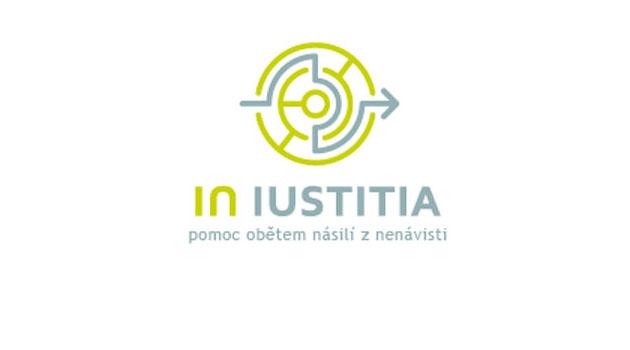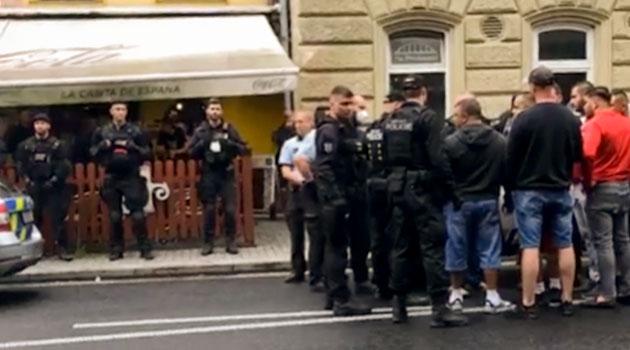Commentary: Bias-motivated violence targets identity and includes the bullying or distrust many in the Czech Republic consider normal

I have been working in the media and with the media since 1995. During the 1990s I co-founded the alternative magazine Živel (Element), which I led for six years as the editor-in-chief.
I have also directed and written screenplays for cultural programs on public broadcaster Czech Television and I have written for magazines ranging from Reflex to RESPEKT. Three years ago I decided to try to use my media experience to help some of the NGOs here, because the subjects they were involved with seemed more and more urgent to me – and less and less represented in the mass media, which is becoming more and more like the tabloids.
I took up a position as the media coordinator at Greenpeace, on a two-year grant, where I worked on a successful campaign resulting in the Czech Government suing Poland at the EU Court of Justice over its expansion of the mine in Turów, which is stealing water in the Czech border area and complicating the lives of thousands of people. When the grant ended I decided to try publicizing subjects other than environmental ones, and I was attracted to an offer from the In IUSTITIA organization, which aids the victims of bias-motivated violence.
I recalled how during the 1990s in Brno we at the Mersey music club had provided the Romani band Synergy (which later became Gulo Čar) with a rehearsal room. We perceived the guys and girls in that band to be brilliant musicians and super people – we looked forward to their concerts and did our best to get them as much media coverage as possible so we could show that we know how to do “Black pop music” in Bohemia and Moravia just as well as they do it in America or elsewhere in Europe.
To this day I recall how we used to hear “unbelievable” stories from those band members about what they and their friends were experiencing on the streets, where they were assaulted, both physically and verbally, out of the clear blue sky, as well as what they were experiencing at bureaucracies, where they were being treated on the basis of biases about their ethnicity. I consider bias-motivated violence to be the most disgusting thing in the world, and let’s admit it, many such biases are held by members of the majority society here.
Bias-motivated violence in the 21st century is committed in the Czech Republic (and not only here) on the basis of disability, ethnicity, gender identity, health status, homelessness, nationality, political opinions, religion or lack thereof, sexual orientation, skin color and subculture. Its odiousness consists of the fact that it targets the identity of the victim.
Naturally, in and of itself this violates the basic principles of a democratic society and calls into question whether those being attacked are actually equal and free. Victims of physical or verbal bias-motivated violence are mostly at a disadvantage vis-a-vis those who assault them.
The victims might have less money, they might have received a worse education, or they might simply have worse access to information. They do not know how to use the legal system, or the public administration system, and sometimes they don’t even have identification, or they prefer to conceal their ethnicity, their gender identity, or other aspects of their personality that could cast them in a minority position.
This disadvantage is why these victims are less able to defend themselves from attack – and that violence does not just impact them negatively as individuals, but also impacts the entire group they are seen to represent. Society has experience with this kind of violence being conceived of as “hate crime”, but the concept of “bias-motivated violence“, which In IUSTITIA uses, seems much more precise to me.
This is not just about the most brutal cases of such violence that eventually are covered by the mass media, but also about the abuse, the bullying, the distrust and the petty squabbles that some majority society members consider “normal” and something that minorities just have to cope with. I admit that as a heterosexual man who is white, I am unable to really imagine what it is like to be in the role of a bias-motivated violence victim, as I have never encountered such treatment myself.
This does not mean, though, that I am unable to see the monstrosity of this behavior. I do not perceive bias-motivated violence to be an affair of the minorities, but as a disease among those of us in the majority in particular, one that we must treat as soom as possible before it has fatal results for all of society.
For that reason, I am glad that the next months and years of my professional career will be connected with the In IUSTITIA organization, which is the only one in the Czech Republic to work with bias-motivated violence victims. Even if we are able to help just a few of the actual victims, I believe the outcome will be a better life not just for them, but also for me, for my children, and basically for the entire Czech Republic.
First published in Romano voďi magazine.
